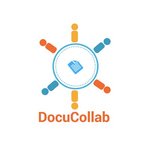Description

Contractbook

OpensourceCM
Comprehensive Overview: Contractbook vs OpensourceCM
Contractbook and OpensourceCM are both contract management solutions designed to streamline the process of creating, managing, and storing contracts. They cater to different user needs and markets and offer varied features that address the unique requirements of their users.
a) Primary Functions and Target Markets
Contractbook:
- Primary Functions: Contractbook offers a cloud-based platform that provides end-to-end contract management solutions. Key features include contract creation, electronic signatures, automation of contract workflows, and centralized storage. With integration capabilities with various third-party services, Contractbook aims to automate and optimize the entire contract lifecycle.
- Target Markets: Contractbook primarily targets small to medium-sized businesses (SMBs) and startups that require efficient contract management with limited legal resources. Their solutions are geared towards businesses looking for a simple yet robust platform to handle contracts without extensive legal knowledge or infrastructure.
OpensourceCM:
- Primary Functions: OpensourceCM provides a contract lifecycle management (CLM) system that encompasses features like contract creation, negotiation tracking, compliance management, and collaboration tools. It is designed to help organizations manage complex contract processes efficiently.
- Target Markets: OpensourceCM typically targets larger enterprises and organizations with more complex contract requirements, including sectors like healthcare, finance, and government, where compliance and detailed workflow management are crucial.
b) Market Share and User Base
-
Market Share: Contractbook, being focused on SMBs and emerging companies, enjoys a significant user base within Europe and has been expanding globally. It is often chosen by companies looking for intuitive and scalable contract management solutions.
-
User Base: Contractbook benefits from its user-friendly design which attracts a larger number of smaller businesses and start-ups. Its emphasis on automation and integration with existing business tools makes it a popular choice in its target market.
-
OpensourceCM is more prevalent among larger enterprises that need more sophisticated features and customizability. It holds a smaller share in the general contract management marketplace due to its focus on complex and high-compliance industries. However, among its niche target markets, it is a respected player.
c) Key Differentiating Factors
-
Ease of Use & Integration: Contractbook is recognized for its user-friendly interface and strong integration with other tools such as CRM systems and productivity suites, which makes it suitable for smaller businesses with limited IT support. Its focus on automation also sets it apart in the ease of use category.
-
Complexity & Customization: OpensourceCM offers deep customization and scalability options, which are essential for larger enterprises handling complex contracts. Its ability to manage compliance-heavy contracts and facilitate detailed workflow customization is a significant differentiator.
-
Pricing Model: Contractbook typically offers more affordable and scalable pricing plans, allowing smaller businesses to leverage contract management tools without heavy investment, while OpensourceCM might have more complex pricing schemes that correspond with its enterprise-focused features and flexibility.
-
Feature Set: While both platforms offer core contract management features, Contractbook’s emphasis on automation and simplicity contrasts with OpensourceCM’s focus on comprehensive lifecycle management and compliance-focused features.
Each of these platforms serves its market with unique strengths; businesses often choose based on their immediate needs for usability, scalability, and specific feature sets tailored to their industry requirements.
Contact Info

Year founded :
2017
+45 89 87 78 38
Not Available
Denmark
http://www.linkedin.com/company/contractbook

Year founded :
Not Available
Not Available
Not Available
Not Available
Not Available
Feature Similarity Breakdown: Contractbook, OpensourceCM
When comparing Contractbook and OpensourceCM, it's important to understand that both are designed to manage contracts but may serve slightly different user bases or preferences based on features and interface design. Here’s a breakdown of their similarities and differences:
a) Core Features in Common:
-
Contract Creation and Editing:
- Both platforms offer tools to create and edit contracts. Users can draft new contracts using templates or from scratch.
-
Collaboration Tools:
- Both allow multiple users to collaborate, edit, and comment on contracts within the platform.
-
Document Management:
- They provide document storage, organization, and version control to manage various stages of a contract's lifecycle.
-
E-signature Integration:
- Both platforms include or integrate with electronic signature solutions, enabling users to sign contracts digitally.
-
Audit Trails:
- They feature audit logs to track changes, comments, and activities for compliance purposes.
-
Notifications and Alerts:
- Users can set reminders and alerts for key dates, renewals, or other critical contract actions.
b) User Interface Comparison:
-
Contractbook:
- Known for its clean, modern, and intuitive user interface that focuses on ease of use. It's designed to enhance productivity with features organized in a straightforward manner, making it easy for users to navigate between contract tasks.
- Emphasizes automation and integrates various contract lifecycle processes smoothly within its interface.
-
OpensourceCM:
- While effective, its interface may not be as modern or intuitive as Contractbook, often offering a more traditional look and feel. This can appeal to users looking for straightforward, function-focused design without the modern aesthetics.
- It may provide more customizable options for businesses looking to tailor the system to specific needs, but this could come with a steeper learning curve.
c) Unique Features:
-
Contractbook:
- Automation Tools: Offers extensive automation features, including workflows and task automation, to streamline contract management processes.
- Data-Driven Insights: Provides analytic tools to gain insights from contract data, helping in decision-making and strategic planning.
- Third-Party Integrations: Seamlessly integrates with various third-party applications such as CRM systems, providing more versatility and extended functionality.
-
OpensourceCM:
- Customization and Flexibility: Provides significant customization capabilities, allowing businesses to tailor the solution to their specific contract management needs.
- Open Source Roots: As the name suggests, the potential for more open-source community contributions can lead to specific custom features desired by some organizations.
- Robust Reporting Tools: Offers detailed reporting capabilities which may be more robust compared to some other services, catering to complex reporting requirements.
In conclusion, while both Contractbook and OpensourceCM offer robust contract management solutions, they cater to slightly different user needs with Contractbook leading in automation and ease of use, while OpensourceCM provides flexibility and customization for specific business requirements.
Features

Not Available

Not Available
Best Fit Use Cases: Contractbook, OpensourceCM
Contractbook and OpensourceCM are both contract management solutions, but they cater to different business needs and scenarios. Here’s a breakdown of the best-fit use cases for each:
a) Contractbook: Best Fit Use Cases
-
Small to Medium Enterprises (SMEs):
- Why? Contractbook is designed with an intuitive interface that makes it easy to use, ideal for SMEs that may not have dedicated legal or contracting teams. Its automation features help streamline contract management, saving time and reducing errors.
-
Startups:
- Why? Startups often need to manage their contracts effectively as they scale. Contractbook offers a cost-effective solution with scalability in mind, providing tools to automate drafting, sharing, and storing contracts.
-
Teams and Freelancers:
- Why? For teams or individuals like freelancers who handle numerous contracts and need a streamlined process for contract creation, storage, and management. Contractbook’s collaborative features enable easy sharing and editing among small teams.
-
Technology and Digital Agencies:
- Why? These businesses often deal with various clients and projects, needing efficient contract workflows. Contractbook's ability to integrate with other business tools enhances productivity.
b) OpensourceCM: Preferred Scenarios
-
Large Enterprises:
- Why? OpensourceCM is suitable for large organizations that need robust and customizable contract management capabilities. It offers deep integration possibilities with existing enterprise systems, which are usually a significant requirement for large corporations.
-
Highly Regulated Industries:
- Why? Industries such as finance, healthcare, or energy, which require rigorous compliance and audit trails, can benefit from OpensourceCM’s advanced features that ensure strict contract governance and control.
-
Businesses Requiring Customization:
- Why? Organizations needing a highly tailored solution can utilize OpensourceCM's open-source nature to customize and extend functionalities specific to their workflows and requirements.
-
Legal Departments and In-house Counsel:
- Why? These departments require detailed oversight and management of contract lifecycles. OpensourceCM provides sophisticated tools for comprehensive contract lifecycle management (CLM).
d) Catering to Different Industry Verticals or Company Sizes
-
Contractbook:
- Industry Verticals: Contractbook is versatile and suits a wide range of industries, including tech, marketing, consultancy, and professional services. Its straightforward setup and use allow it to cater to industries that do not require highly complex contract management.
- Company Sizes: Best fits small to medium-sized companies due to its ease of use, affordability, and feature set that supports growing businesses without the need for heavy customization.
-
OpensourceCM:
- Industry Verticals: Particularly advantageous for industries requiring detailed compliance and regulatory adherence such as finance, healthcare, government, and large-scale manufacturing.
- Company Sizes: Ideal for larger companies and enterprises that have the resources to customize the platform and integrate it with other enterprise resource planning (ERP) and customer relationship management (CRM) systems.
In conclusion, the choice between Contractbook and OpensourceCM largely depends on the size of the business, industry-specific needs, and the level of customization required. Contractbook excels in simplicity and ease of use for smaller organizations, whereas OpensourceCM offers the depth and customizable features that larger enterprises demand.
Pricing

Pricing Not Available

Pricing Not Available
Metrics History
Metrics History
Comparing teamSize across companies
Conclusion & Final Verdict: Contractbook vs OpensourceCM
When evaluating Contractbook and OpensourceCM, it's essential to look at multiple factors such as cost, functionality, ease of use, scalability, support, integration capabilities, and user feedback. Here's a detailed conclusion encompassing these areas:
Final Verdict and Conclusion
a) Best Overall Value
- Contractbook offers a more comprehensive approach towards contract management with intuitive design and robust features tailored for modern businesses. Its cloud-based platform emphasizes collaboration, automation, and integrations, making it suitable for teams looking for efficiency and scalability.
- OpensourceCM, as an open-source solution, provides flexibility in customization, potentially lower long-term costs, and extensive control over your system. However, it often requires technical expertise for setup and maintenance.
Given these considerations, Contractbook tends to provide better overall value for most businesses due to its user-friendly interface, rich feature set, and strong customer support. However, for businesses with technical resources and a need for tailored solutions, OpensourceCM might be the preferred choice.
b) Pros and Cons
Contractbook:
-
Pros:
- User-friendly interface and easy setup
- Strong collaboration tools
- Seamless integration with third-party applications
- Automation capabilities to streamline workflows
- Reliable customer support and comprehensive documentation
-
Cons:
- Subscription-based pricing may be higher for larger teams or extended features
- Limited customization compared to open-source solutions
OpensourceCM:
-
Pros:
- High customization potential and flexibility
- Cost-effective for organizations with the capability to self-manage
- Complete ownership of data, which can be crucial for sensitive industries
- No vendor lock-in
-
Cons:
- Requires technical expertise for installation and maintenance
- May need additional resources for updates and troubleshooting
- Potentially slower implementation due to customization efforts
- Limited vendor-provided support services
c) Recommendations
-
Evaluate Your Technical Capabilities:
- If your team has the technical capacity to handle an open-source solution, OpensourceCM may be a suitable option for maximum control and customization.
- For teams with limited technical resources, Contractbook's simplicity and ease of use would be more beneficial.
-
Consider Business Needs and Growth:
- For a rapidly growing business that prioritizes scalability, efficient workflows, and automation, Contractbook is likely a better fit.
- If your organization requires extensive customization due to unique processes, OpensourceCM can be tailored to your specific needs, bearing in mind the costs of development and maintenance.
-
Cost vs. Service:
- Evaluate the total cost of ownership, including potential technical support, over the product lifecycle, to decide how much weight to give upfront versus ongoing costs.
In conclusion, the right choice largely depends on your organization's specific needs and capacity to support and maintain the system effectively. It is recommended to conduct a thorough internal assessment of needs and resources and, if possible, try out demo versions to gauge user experience and feature effectiveness.
Add to compare
Add similar companies



